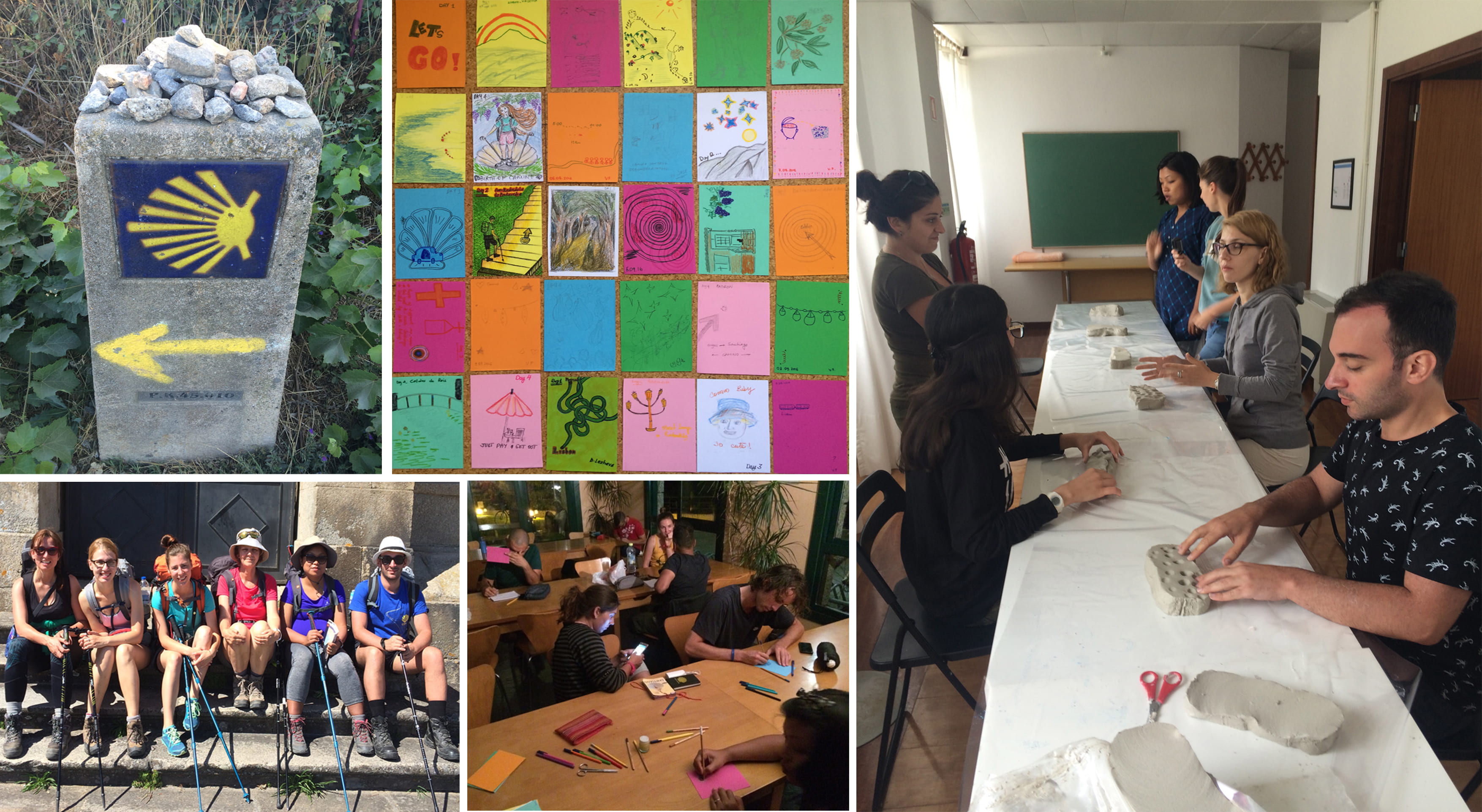Art therapy and The Altemus Leadership Programme
Paula Boyle (MA Art Psychotherapy, 2015) is an HCPC registered health care practitioner who practices full-time as an art therapist at Demelza Hospice Care for Children, Kent. She is also a committee member of the British Association of Art Therapists group called ‘The Creative Response’, a special interest group for art therapists working in palliative care. Alongside her art therapy career, Paula is the creator of Uccelli Jewellery, glass art jewellery inspired by her garden.
She tells us about her time at Goldsmiths and the Altemus Leadership Programme, which helps young people from less developed and developing countries realise their fullest human and leadership potential.
My time at Goldsmiths
At the beginning of my time at Goldsmiths, I compared my journey on the course to cycling the challenging hills of the surrounding areas of the University. Studying for an MA as a mature student had its challenges but as any keen cyclist will tell you, it is the feeling of reaching the top of the hill that makes it worth the effort. By the end of my time at Goldsmiths I felt an immense sense of achievement. The course provided a robust theoretical framework with clinical placements alongside experiential learning in art therapy groups. I made solid friendships with like-minded creative people and thrived creatively and academically in the university environment. I went on to graduate as an Art Psychotherapist and registered healthcare professional. I look back on my time at Goldsmiths with very happy memories.
My training at Goldsmiths prepared me for working in dynamic settings with a particular focus on difference and diversity in society. One setting is the non-profit educational organisation, Altemus, where in the summer of 2016 I volunteered as an art therapist for two weeks.
Art making and leadership through the Altemus Leadership Programme
Altemus’ mission is to help young people from less developed and developing countries realise their fullest human and leadership potential through leadership skills training. With new tools in hand, Altemus alumni will be better equipped to work for the good of their communities. Eight young people from India, Georgia, Armenia, Kyrgyzstan and Belarus participated in the two-week programme.
The first week consisted of residential training based in the scenic beach town of Sintra, Portugal. This provided the participants with the fundamental skills required for leadership, led by trainers in sports psychology, enneagram personality types and business management. Interwoven between these modalities of learning, art-making was a supportive part of the self-learning experience. When feelings such as fear and failure were addressed, I was able to apply the principles of the Goldsmiths training whilst working with the students in groups and individually in the context of the programme.
Art making sessions provided a means of expression and containment when difficult memories and challenging feelings surfaced in the exploratory journey each of the students embarked on. Feedback from the participants reported that art-making provided a way to deepen their self-understanding, and they were also surprised to have found a new skill that they were able to utilise, with regards to seeing how they felt through their art making.
Modelling with clay helped articulate feelings of anger, body mapping brought the group together forming bonds and trust, and each of the students created art with boxes to explore the inner and outer self, with vibrant and memorable outcomes.

The second week of the programme took to the historic path of Camino de Santiago trekking 100 kilometres from Portugal to Santiago, Spain. The aim of the programme was to increase the young people’s leadership knowledge, therefore each of the members led the group each day through the winding paths and hilly forests of the Camino trail. I accompanied the group on the trek and daily art making was a part of the experience, which helped the group members affirm a deeper sense of self. Art was a constant a companion on the journey and I invited fellow pilgrims we met on along the way to participate. Collating the images at the end of the journey created a visual diary of the trek, with symbolic references to the resilience and determination to complete the journey together.
Looking back at my time at Altemus
Looking back on my time with the Altemus Programme, I feel very grateful for having the opportunity to facilitate art making in such a beautiful and adventurous location. I met a wonderful group of people whose life histories, openness and wiliness to partake positively impacted on my experience as the art therapist on the programme. I hope the process of art making will enable them to build on their leadership skills to help those less fortunate in their communities.
I would like to thank the Altemus Programme and wish the programme every future success for a worthy cause. For more information about the Altemus Leadership Programme, please visit the website.